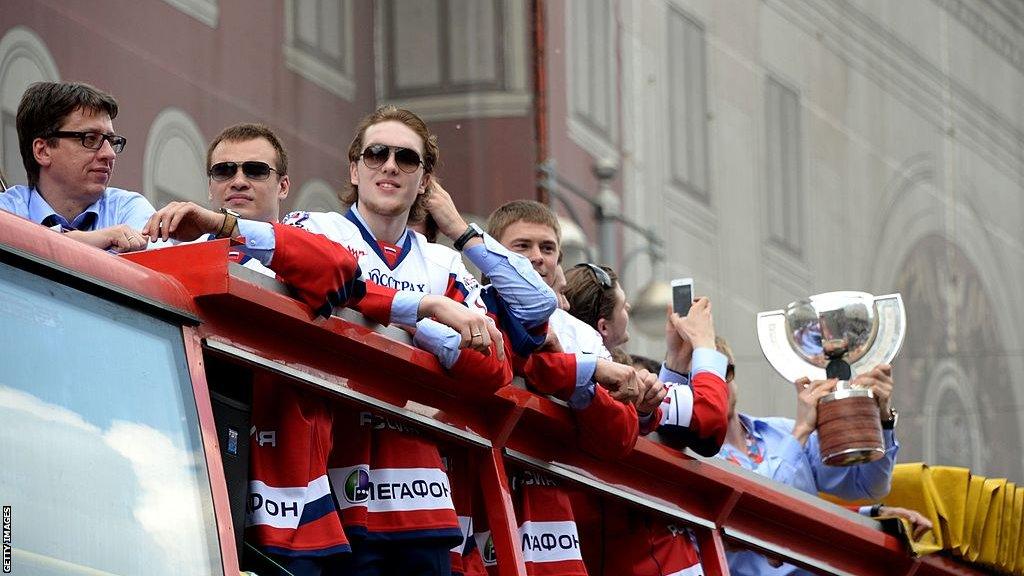Ice Hockey World Championships: Russia claim exclusion 'not beneficial' for sport
- Published

Russia's players enjoyed an open-top bus parade the last time the country won the Ice Hockey World Championships in 2014
Russia's ice hockey federation says the country's exclusion from this year's World Championships is not "beneficial, nor constructive" for the sport.
The International Ice Hockey Federation last year suspended all national teams and clubs from Russia and Belarus due to the military conflict with Ukraine.
The IIHF has now extended that ban for the 2023-24 season, saying "it is not yet safe to reincorporate" the teams.
The World Championships take place in Finland and Latvia from 12-28 May.
They were due to take place in St Petersburg, but the IIHF stripped the city of its host status and says risks to the safety of players, officials and fans is the reason behind the continuation of the ban.
Ice hockey powerhouse Russia has won the event five times since 1993, while the former Soviet Union lifted the world title on 22 occasions.
Taken together, those 27 triumphs are the joint highest World Championship victories of any nation, alongside Canada.
"The format of such tournaments as the World Championships implies competition between the strongest athletes of the planet, without national or ethnic discrimination," the Russian Ice Hockey Federation said.
"Russia is one of the world's leading ice hockey countries, it is among the leaders in terms of victories and medals of the most prestigious international tournaments.
"The suspension of the Russian national team from World Championships and other competitions under the contrived pretext of 'security of participants' is a decision that is neither constructive, nor beneficial for world hockey."
The International Olympic Committee last year called on sports federations to exclude Russian and Belarusian athletes, officials and teams from international events wherever possible.
The majority of mainstream sports have implemented similar bans, most prominently tennis, although some have allowed individuals from the countries to compete as neutral athletes.

Our beautiful land as you've never seen it before: Sir David Attenborough celebrates the wonders of British wildlife
Go Hard or Go Home: Eight Britons face brutal workouts and terrifying challenges
